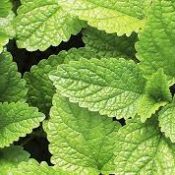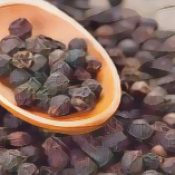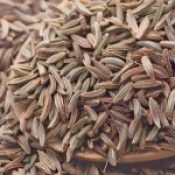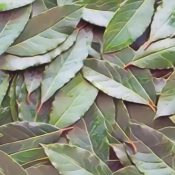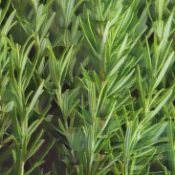Author: A Solitary Pagan
Kitchen Herbs for Witches: Peppermint
Planet: Venus Element: Air Main magickal uses: cleansing, consecration, dreams, happiness, healing, love, money, passion, prosperity, protection, psychic development, purification, release, renewal, rest, sleep Other magickal uses: Animals, divination, endings, energy, exorcism, good luck, grieving, spirit offering, success, transformation Lore: Mints are sacred to the god Hades, because (as happe...
Kitchen Herbs for Witches: Pepper
Planet: Mars. Element: Fire. Main magickal uses: cursing, exorcism, passion, protection. Other magickal uses: commanding, sensuality, spell-breaking, stops envy. Lore: Stings the eyes when burned.
Kitchen Herbs for Witches: Caraway
Planet: Mercury Element: Air Main magickal uses: Fidelity, love, memory, passion, preventing theft, protection, retention, sensuality Other magickal uses: consecration, fertility, gain, honesty, keeping secrets, peace of mind, weddings
Kitchen Herbs for Witches: Bay
Planet: Sun Element: Fire Main magickal uses: Clairvoyance, consecration, divination, dreams, exorcism, healing, love, passion, protection, psychic protection, purification, wisdom, wishes Other magickal uses: endings, good luck, harmony, Imbolc, inspiration, justice, knowledge, magic, memory, money, overcome opposition, peace, psychic development, release, spell-breaking, strength, success, tranq...
Rosemary
Salvia Rosmarinus, commonly known as rosemary, is a shrub with fragrant, evergreen, needle-like leaves and white, pink, purple, or blue flowers, native to the Mediterranean region. Until 2017, it was known by the scientific name Rosmarinus officinalis, now a synonym. It is a member of the sage family Lamiaceae, which includes many other medicinal and culinary herbs. The name “rosemary” derives fro...
Rosemary: Description
Rosemary is an aromatic evergreen shrub with leaves similar to hemlock needles. It is native to the Mediterranean and Asia, but is reasonably hardy in cool climates. Special cultivars like ‘Arp’ can withstand winter temperatures down to about −20 °C. It can withstand droughts, surviving a severe lack of water for lengthy periods. In some parts of the world, it is considered a potentially invasive ...
Rosemary: Taxonomy
Salvia rosmarinus is now considered one of many hundreds of species in the genus Salvia. Formerly it was placed in a much smaller genus, Rosmarinus, which contained only two to four species including R. officinalis, which is now considered a synonym of S. rosmarinus. The other species most often recognized is the closely related, Salvia jordanii (formerly Rosmarinus eriocalyx), of the Maghreb of A...
Rosemary: History
The first mention of rosemary is found on cuneiform stone tablets as early as 5000 BCE. After that not much is known, except that Egyptians used it in their burial rituals. There is no further mention of rosemary until the ancient Greeks and Romans. Pliny the Elder (23–79 CE) wrote about it in The Natural History,[14] as did Pedanius Dioscorides (c. 40 CE to c. 90 CE), a Greek botanist (amongst ot...
Rosemary: Usage
Upon cultivation, the leaves, twigs, and flowering apices are extracted for use. Rosemary is used as a decorative plant in gardens. The leaves are used to flavor various foods, such as stuffing and roast meats.
Rosemary: Cultivation
Since it is attractive and drought-tolerant, rosemary is used as an ornamental plant in gardens and for xeriscape landscaping, especially in regions of Mediterranean climate. It is considered easy to grow and pest-resistant. Rosemary can grow quite large and retain attractiveness for many years, can be pruned into formal shapes and low hedges, and has been used for topiary. It is easily grown in p...
Rosemary: Culinary use
Rosemary leaves are used as a flavoring in foods, such as stuffing and roast lamb, pork, chicken, and turkey. Fresh or dried leaves are used in traditional Mediterranean cuisine. They have a bitter, astringent taste and a characteristic aroma which complements many cooked foods. Herbal tea can be made from the leaves. When roasted with meats or vegetables, the leaves impart a mustard-like aroma wi...
Rosemary: Fragrance
Rosemary oil is used for purposes of fragrant bodily perfumes or to emit an aroma into a room. It is also burnt as incense, and used in shampoos and cleaning products.
